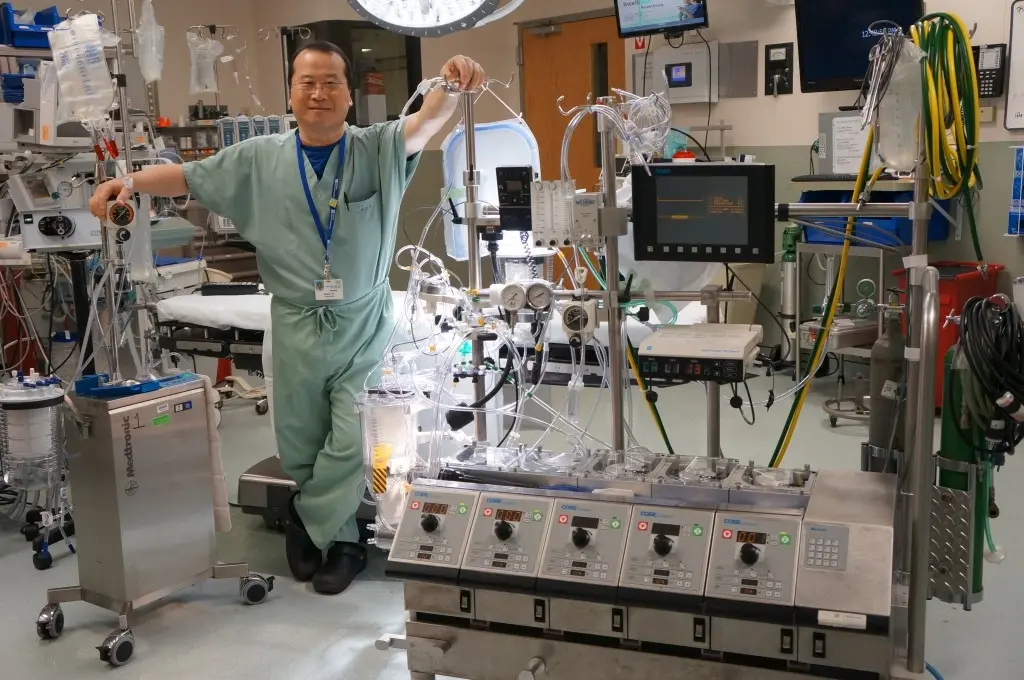
How to Become a Perfusionist: A Step-by-Step Guide
Finding the right guide for your dreams is a bit dificult because of which individuals often faces with various thought such as how to become a perfusionist, student often faces with various kinds of confusion.
If you are passionate about healthcare and have a strong interest in cardiovascular physiology, becoming a perfusionist might be the perfect career path for you. Perfusionists play a crucial role in supporting patients undergoing open-heart surgery or other procedures that require cardiopulmonary bypass. They are responsible for operating the heart-lung machine, which keeps the patient’s blood circulating and oxygenated while the heart is temporarily stopped during surgery.
What is a Perfusionist?
Before diving into the steps of how to become a perfusionist, let’s first understand the role of a perfusionist in the medical field. Perfusionists are highly trained healthcare professionals who work alongside cardiac surgeons, anesthesiologists, and other medical professionals during surgical procedures. They are experts in operating and monitoring the heart-lung machine, as well as other devices that support the patient’s circulatory system during surgery understanding these responsibilities before proceeding to start your preparation for how to become a perfusionist is very important.
Perfusionists are also responsible for managing the patient’s blood flow, temperature, and other vital signs throughout the surgical procedure. Their primary goal is to ensure that the patient’s organs receive an adequate supply of oxygenated blood while the heart is temporarily stopped or bypassed. This requires a deep understanding of cardiovascular physiology, as well as the ability to make quick and accurate decisions in high-pressure situations.
Steps of how to Become a Perfusionist

Earn a Bachelor’s Degree
To know how to become a perfusionist, you must first complete a bachelor’s degree in a related field, such as biology, chemistry, or physiology or According to the required eligibility of your academic institution. While specific degree requirements may vary by program, most perfusion schools prefer candidates with a strong background in science and healthcare.
Gain Clinical Experience
Another important steps of how to become a perfusionist is After completing your bachelor’s degree, you will need to gain hands-on clinical experience in a healthcare setting. Many perfusion programs require applicants to have a minimum number of hours working in a hospital or medical facility before applying. This experience will help you develop the necessary skills and knowledge to succeed in a perfusion program.
often when individual thinks about how to become a perfusionist they get confused about where to apply, Apply to an Accredited Perfusion Program
Once you have completed your bachelor’s degree and gained relevant clinical experience, you can apply to an accredited perfusion program. Usually lasting two to four years, these programmes combine classroom learning with laboratory work and clinical rotations. During your training, you will learn about cardiac anatomy, physiology, and the operation of the heart-lung machine.
Complete a Certification Exam
One of the most important step of how to become a perfusionist , After graduating from a perfusion program, you must pass a national certification exam to become a certified clinical perfusionist (CCP). This exam tests your knowledge and skills in perfusion techniques, patient care, and medical ethics. Once you have obtained your certification your mission of ” how to become a perfusionist is completed, you can begin practicing as a perfusionist.
Maintain Certification and Continuing Education
But even after all these steps of how to become a perfusionist one additional step is To maintain your certification as a perfusionist, you will need to participate in continuing education courses and adhere to the standards set by the American Board of Cardiovascular Perfusion (ABCP) or your country eligibility. This may include attending conferences, workshops, and other professional development opportunities to stay current with the latest advances in perfusion technology and cardiac surgery.
Is becoming a Perfusionist Right for Me?

If you are thinking how to become a perfusionist or if Becoming a perfusionist is right for you then it requires a high level of dedication, attention to detail, and critical thinking skills. It is a challenging yet rewarding career that offers the opportunity to make a real difference in the lives of patients undergoing complex surgical procedures. If you are passionate about healthcare, have a strong background in science, and enjoy working in a fast-paced environment, becoming a perfusionist could be the perfect fit for you.
In conclusion,
If are confused about how to Become a perfusionist then becoming a perfusionist is a career that requires specialized training, education, and certification. By following the steps outlined above, you can embark on a fulfilling and exciting career of your mission of how to become a perfusionist in cardiovascular perfusion. Remember to stay up-to-date with the latest advancements in perfusion technology and continue to expand your knowledge and skills throughout your career. Good luck on your journey to becoming a perfusionist!
FAQ’s
Duration of how to become a perfusionist?
Duration of How to become a perfusionist? It typically takes around 4 to 5 years to become a perfusionist. This includes completing a bachelor’s degree in a relevant field such as biology or chemistry, followed by a specialized perfusion training program. The perfusion training program can last anywhere from 1 to 2 years, depending on the institution and specific requirements. After completing the education and training requirements, individuals may also need to pass certification exams to become a certified clinical perfusionist. Overall, the journey to becoming a perfusionist involves several years of education, training, and certification to prepare individuals for this specialized and important healthcare role.
How can I become perfusionist after 12th?
How to become a perfusionist after completing 12th grade, you would typically need to follow these steps:
- Complete your 12th grade with a strong background in science subjects, such as biology, chemistry, and physics.
- Pursue a Bachelor’s degree in Perfusion Technology or a related field from a recognized institution.
- Gain practical experience through internships or clinical rotations in perfusion labs or hospitals.
- Consider obtaining certification from organizations like the American Board of Cardiovascular Perfusion (ABCP) to enhance your credentials.
- Stay updated on the latest advancements in perfusion technology through continuing education and professional development opportunities.
By following these steps and demonstrating a strong commitment to the field, you can work towards becoming a successful perfusionist after completing your 12th grade education.
Is a perfusionist a Dr?
A perfusionist is a healthcare professional who operates the heart-lung machine during cardiac surgeries. Although a perfusionist plays a crucial role in supporting the patient’s circulation and oxygenation during surgery, they are not medical doctors. Instead, perfusionists typically hold a bachelor’s or master’s degree in perfusion science or a related field. They work closely with the surgical team, including doctors, to ensure the patient’s safety and well-being during procedures. While they are not medical doctors, perfusionists are highly trained and skilled professionals who contribute significantly to the success of cardiac surgeries.





